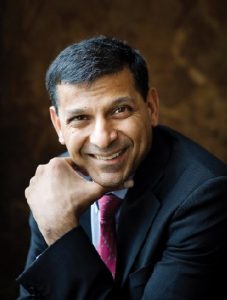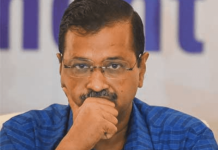 The unexpected praise of Prime Minister Narendra Modi-led government came from Raghuram Rajan, Former Governor of Reserve Bank of India and presently Distinguished Service Professor of Finance at University of Chicago Booth School of Business, while talking about what Modi I has “achieved the best”. He highlighted schemes like Jan Dhan, Aadhar, direct cash transfer of subsidies, pensions, and scholarships.
The unexpected praise of Prime Minister Narendra Modi-led government came from Raghuram Rajan, Former Governor of Reserve Bank of India and presently Distinguished Service Professor of Finance at University of Chicago Booth School of Business, while talking about what Modi I has “achieved the best”. He highlighted schemes like Jan Dhan, Aadhar, direct cash transfer of subsidies, pensions, and scholarships.
He also mentioned prominently flagship programmes like Swachh Bharat: the clean India programme, toilets for all, Pradhan Mantri Ujwala Yojana cooking gas connections for poor, Ayushman Bharat and the healthcare for the poor where Modi I have “achieved the best”.
Delivering a lecture on “India’s Economy: How did we get here?” he explained reasons for the slowdown in India economy but at the same time lauded reforms in power sector like restoring power distribution companies to health, moving to renewable energy and revival of stranded power plants.
Giving credit to NDA 1 for a slew of reforms during the tenure of Atal Behari Vajpayee from the year 1999-2004, Rajan however, said that despite significant reforms, the subsequent “India Rising” campaign did not convince the electorate in the 2004 elections.
UPA piggy rides NDA work
He observed that during this period NDA 1 did not see strong growth despite reforms but UPA 1, actually benefitted from lagged effects of NDA reforms. However, coalition partners limited further reforms. He made another interesting observation and said that the UPA was second time lucky when it returned to power in 2009 riding on the success of the farm loan waiver rather than economic growth.
There was an explosion in investment including infrastructure but strong growth also put pressure on existing institutions for resource allocation. What hit the economy during UPA II was the fact that opposition and bureaucracy had turned uncooperative on policies like GST while corruption scandals during this period brought economy to a standstill, inflation touched double digits and land acquisition bill led to a roadblock in economic growth. The then government started course correction on macro-stability during 2012-13 after a wake-up call and initiated some fiscal consolidation. Then came Modi I with great expectations like transparency and promise of jobs. It began implementing some important macro, sectoral and populist reforms but the performance can at best be rated as mixed performance.
Touching on subjects like demonetization and GST during Modi II, Rajan observed thatdemonetization was a “misguided in concept, initiated without adequate preparation and it damaged informal sector and construction and real estate”. The damage was so huge that it would be “hard to measure”. Then came Goods and Services Tax, which was “sound in concept but was initiated without adequate preparation and as such undercut compliance and constant fiddling created uncertainty”. He appreciated inflation control but said that it was yet to be tested.
Slowing economy
Coming to his pet subject, he observed that the growth of the Indian economy is slowing down. Explaining what he calls signs of a deep malaise in the Indian economy, the noted financial analyst said that it is not only that growth is slowing significantly, the fiscal space is also narrowing sharply while debt and distress is rising.
About banking sector reforms, he said that there were limited efforts including the creation of Bank Board Bureau to make PSU appointments. Then the PSB Bank Boards have little power and continue to be politicized. Also, private banks, cooperatives and NBFCs are immune to mis-governance. The FDI was flattening. Growth in textile sector was miniscule though China’s share had been falling.
Not global factors alone
He concluded that to blame global factors would be wrong because IMF global growth was 2.7 per cent in 2013-16, but it actually grew to 3 percent in 2017-19. The global trade volume growth was 3.1 per cent in 2013-16 and this too went upto 4.2 per cent in 2017-19. Similarly, oil price during 2013-16 was 73.5$/b. in 2017-19 it came down to 60.1$/b. He questioned, “Is it just global factors?” referring to dip in economic growth and said global factors don’t seem the proximate culprits.












